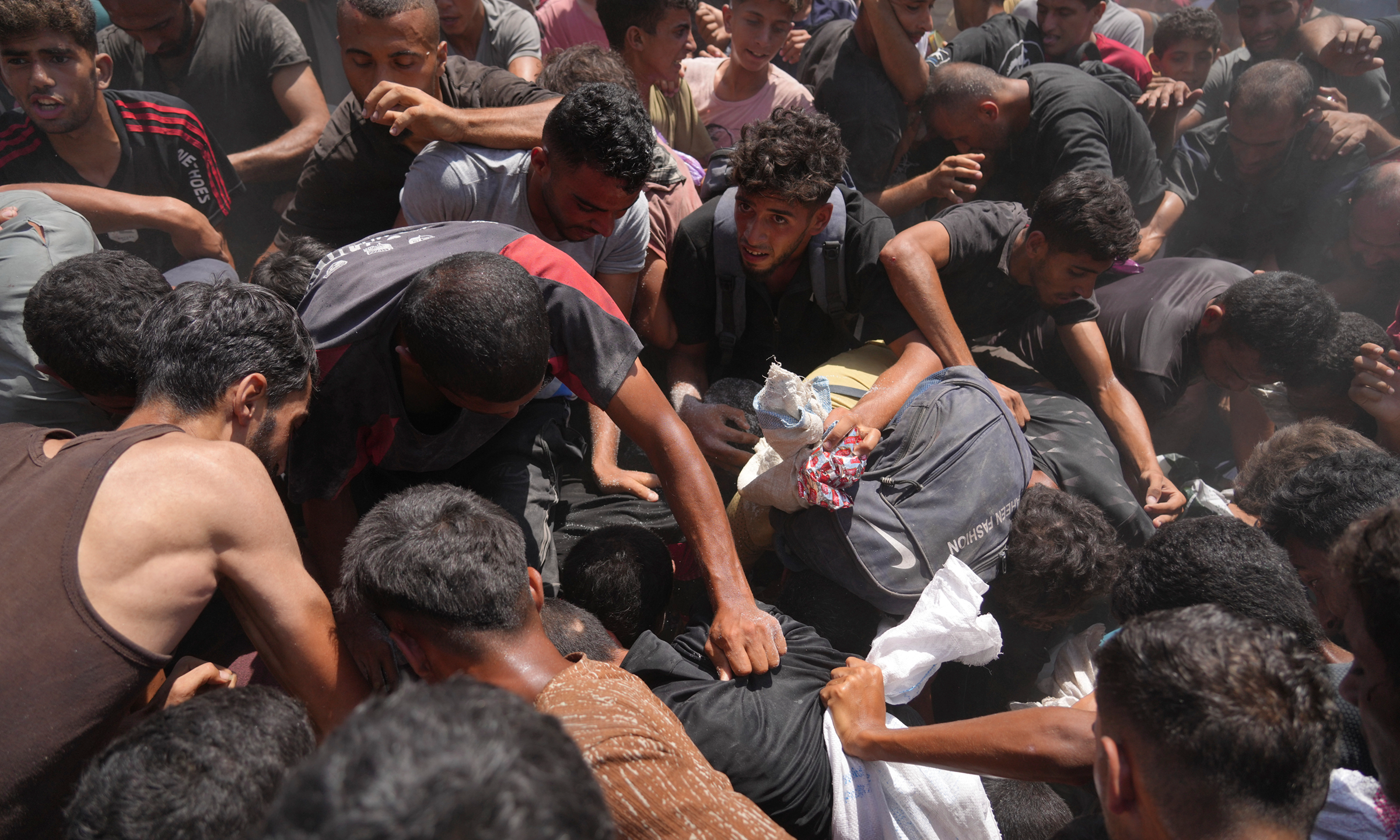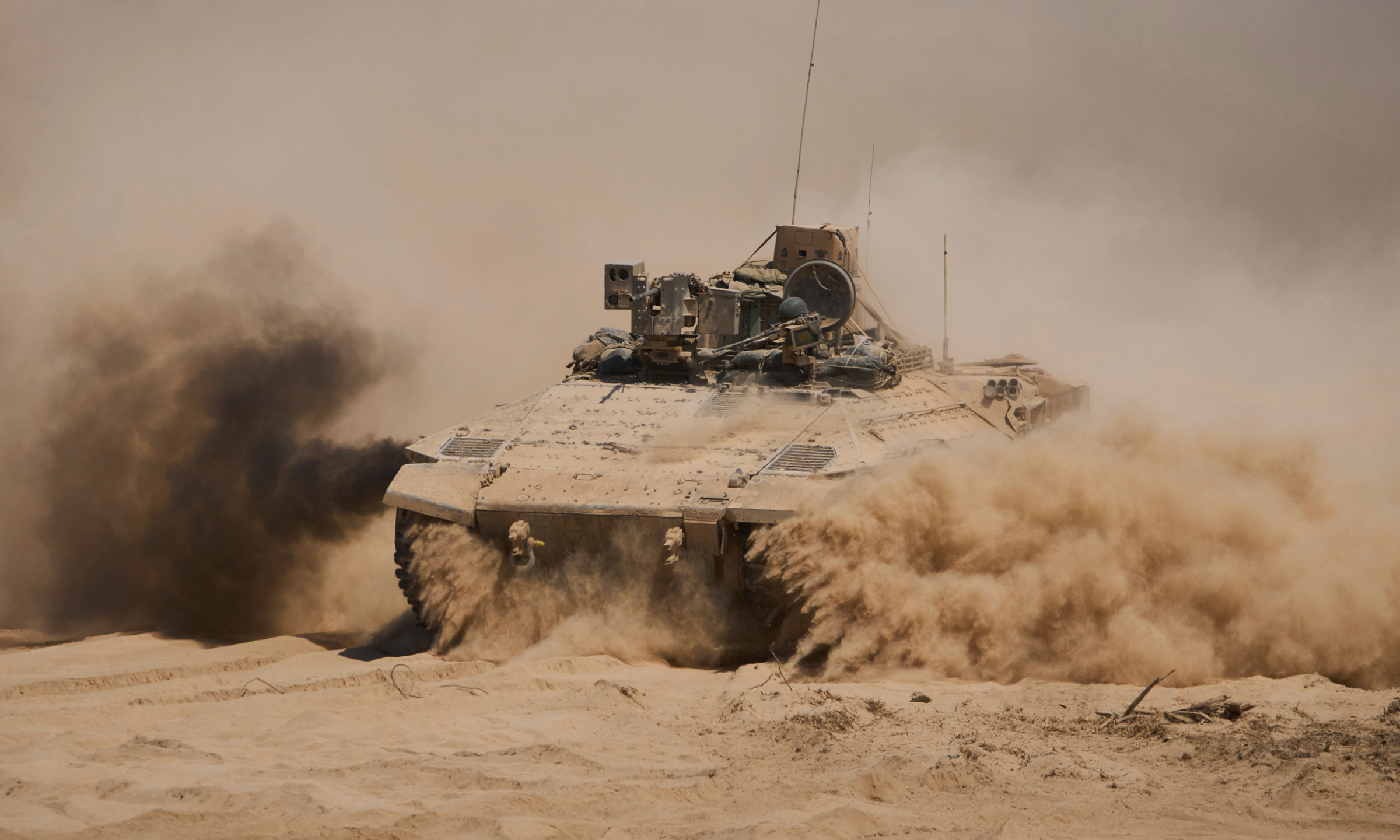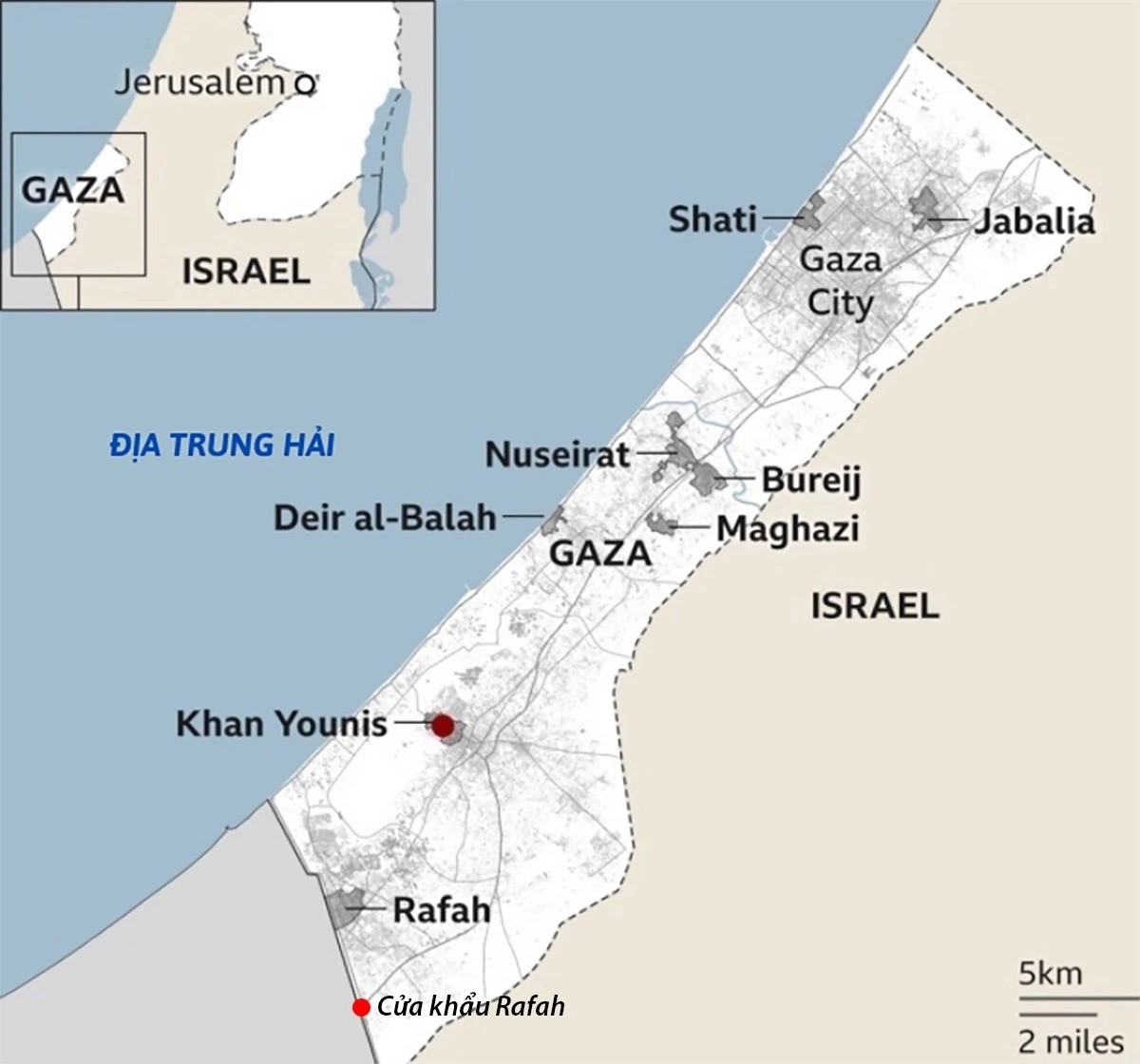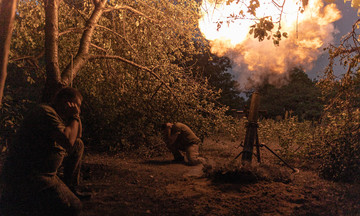On 7/8/2025, Israeli Prime Minister Benjamin Netanyahu admitted Israel plans to fully control the Gaza Strip to "ensure security, eliminate Hamas, and give Gazans freedom." This contradicts his November 2023 pledge that Israel wouldn't occupy Gaza after the conflict.
Netanyahu's ambitious plan calls for the Israel Defense Forces (IDF) to expand its military campaign and occupy the entire 365 sq km Gaza Strip, home to about 2 million people now engulfed in war and despair.
After 10 hours of debate on 8/8, Netanyahu's security cabinet largely approved the plan, but it faced fierce opposition from IDF leaders.
Exhausted after nearly two years of fighting on multiple fronts, senior Israeli soldiers and officers warn this move not only threatens hostages' lives but risks trapping Tel Aviv in a strategic quagmire. This could escalate internal tensions as disagreement over a Gaza resolution persists.
The issue began at a closed meeting on 5/8. Netanyahu summoned top security officials, including Defense Minister Katz, Strategic Affairs Minister Dermer, and IDF Chief of Staff Zamir.
 |
Civilians scramble for aid dropped by parachute in northern Gaza on 7/8. Photo: AP |
Civilians scramble for aid dropped by parachute in northern Gaza on 7/8. Photo: AP
According to Ynet, Netanyahu outlined his bold plan: expand the military campaign throughout Gaza and reoccupy the entire strip. The goal is to destroy Hamas, rescue remaining hostages in tunnels, and establish long-term control, preventing militant groups from regrouping.
While Netanyahu has pursued hardline Gaza strategies before, this plan is likely driven by internal political pressure. Influential far-right ministers in the ruling coalition, Itamar Ben-Gvir and Bezalel Smotrich, recently called for a "radical military solution" in Gaza.
Ben-Gvir even suggested re-establishing Jewish settlements in Gaza, an idea widely criticized as violating international law. Smotrich echoed this hawkish tone, insisting only full Gaza control ensures Israel's long-term security.
While far-right politicians believe a military solution will bring victory in Gaza, the IDF sees a different picture. In a rare early August address, Chief of Staff Zamir admitted that despite heavy losses, Hamas has not been eliminated after nearly two years of intense Israeli attacks.
Meanwhile, the IDF is exhausted from fighting on multiple fronts. Constant combat has fatigued soldiers, degraded equipment, and stalled modernization plans.
Haaretz reports the Gaza war has cost the Israeli military dearly, with thousands of soldiers killed or wounded, equipment worn down from constant use, declining morale, and reservists reluctant to return when called up.
According to Haaretz, General Zamir warned that reoccupying Gaza requires vast resources and risks Israel managing a war-torn territory.
"We are not prepared for Gaza's civil administration. This plan will create a humanitarian crisis of our own making," an anonymous IDF source revealed.
The IDF also fears any military action against Hamas-controlled areas where hostages are held could have dire consequences, costing the hostages' lives.
Amos Harel, Haaretz's veteran military commentator, calls Netanyahu's plan a "political gamble," not a military strategy. He suggests Netanyahu's primary motive isn't just security but the survival of his ruling coalition, threatened by internal divisions and public protests.
"Netanyahu is forcing the IDF into an unwinnable war while international opinion turns against Israel," Harel warned.
 |
Israeli armored vehicles on the road from northern Gaza to southern Israel on 29/7. Photo: AP |
Israeli armored vehicles on the road from northern Gaza to southern Israel on 29/7. Photo: AP
Allies like the US and the European Union (EU), while maintaining close ties with Israel, have expressed concern over unilateral military actions in Gaza. US Secretary of State Marco Rubio recently emphasized prioritizing humanitarian aid for Gaza over a full-scale occupation.
Meanwhile, Gaza faces an unprecedented humanitarian disaster. Gaza's health authority reports over 61,000 deaths, mostly women and children. About 1.9 million people are displaced, crowded into poorly equipped refugee camps.
The UN Office for Project Services (UNOPS) says 88% of aid trucks entering Gaza since May have been blocked or looted, collapsing the aid system.
"Gaza is hell on earth. A new Israeli offensive will push millions to the brink of survival," warned UN Assistant Secretary-General Miroslav Jenca.
The international community, from the UN Security Council to Arab nations like Egypt and Jordan, has condemned Israel's reoccupation plan. On 5/8, the Security Council called it a "grave threat" to regional peace, reaffirming Gaza as part of a future Palestinian state.
Tahani Mustafa, an expert from the International Crisis Group (ICG), believes Israel's military plan is counterproductive. "The IDF reoccupying Gaza will worsen the humanitarian crisis and strengthen Hamas. Witnessing the devastation, Palestinians will be more easily drawn to armed groups," he said.
The conflict extends beyond the battlefield and Tel Aviv's meeting rooms. Israel is internally divided. Netanyahu's coalition, reliant on far-right factions like Jewish Power and Religious Zionism, faces collapse.
When Netanyahu accepted a January 2025 ceasefire with Hamas, Ben-Gvir resigned furiously, calling it "surrender to Hamas." Smotrich also condemned the deal, claiming it undermined the goal of destroying Hamas. Pressure from the far-right has intensified, threatening the coalition and pushing Netanyahu toward a more drastic plan.
Hundreds of thousands of Israelis recently protested in Tel Aviv and Jerusalem, demanding the government "prioritize rescuing hostages over a new war." A reservist group called the reoccupation plan a strategic disaster, warning it could lead to the IDF's collapse if the conflict continues.
 |
Locations of cities in the Gaza Strip. Graphic: BBC |
Locations of cities in the Gaza Strip. Graphic: BBC
"Netanyahu is trying to impose a military solution to cover up political failure. The price could be the weakening of both the IDF and Israel's international standing," observed Haaretz commentator Ravit Hecht.
Netanyahu claims Israel won't establish a governing authority after occupying Gaza, instead handing it to "Arab forces" he believes "will govern properly, giving Gazans a good life without threatening us."
He didn't specify which "Arab forces." Arab nations recently proposed an independent committee to manage Gaza's reconstruction, funded by Gulf states. However, this plan hasn't addressed the core question: how to ensure both Israeli security and Palestinian peace?
Experts believe that without answering these questions, Israel's reoccupation plan will have immediate consequences. A new offensive would deepen Gaza's humanitarian crisis, endanger hostages, and further isolate Israel internationally.
Internal divisions between the government, military, and public are weakening Israel's ability to respond to other threats, from Hezbollah in Lebanon to the Houthis in Yemen.
"Israel is at a historical crossroads. On one side is Netanyahu's military ambition, on the other, the harsh realities of war. The wrong choice could shape the fate of not only Gaza but the entire region," commented Amos Harel.
Phong Lam (Ynet, Haaretz, Reuters)












